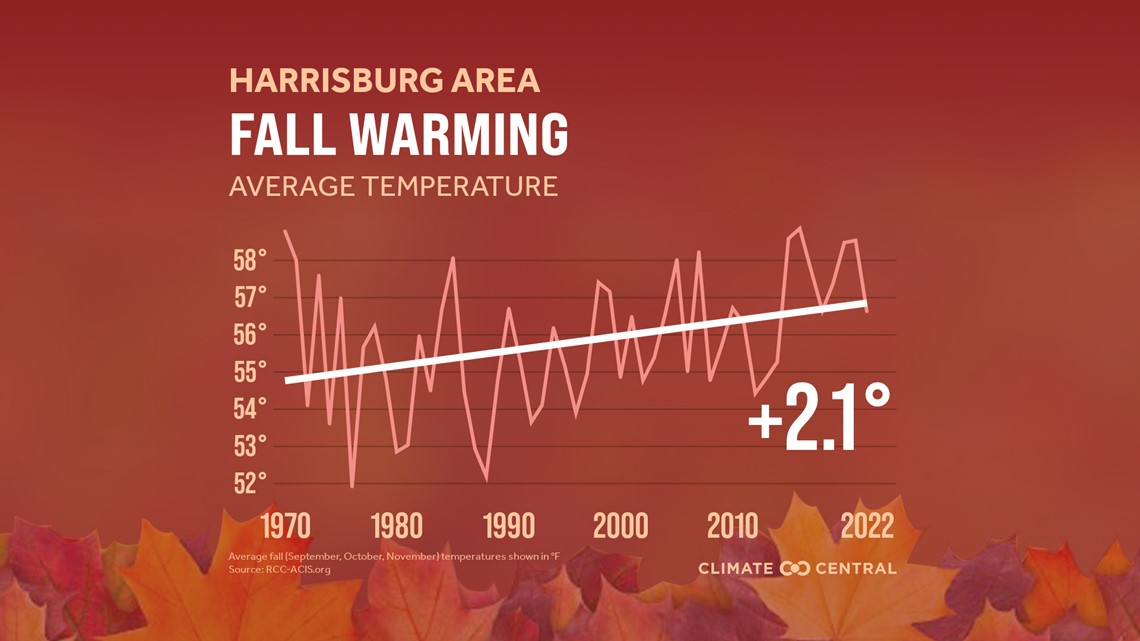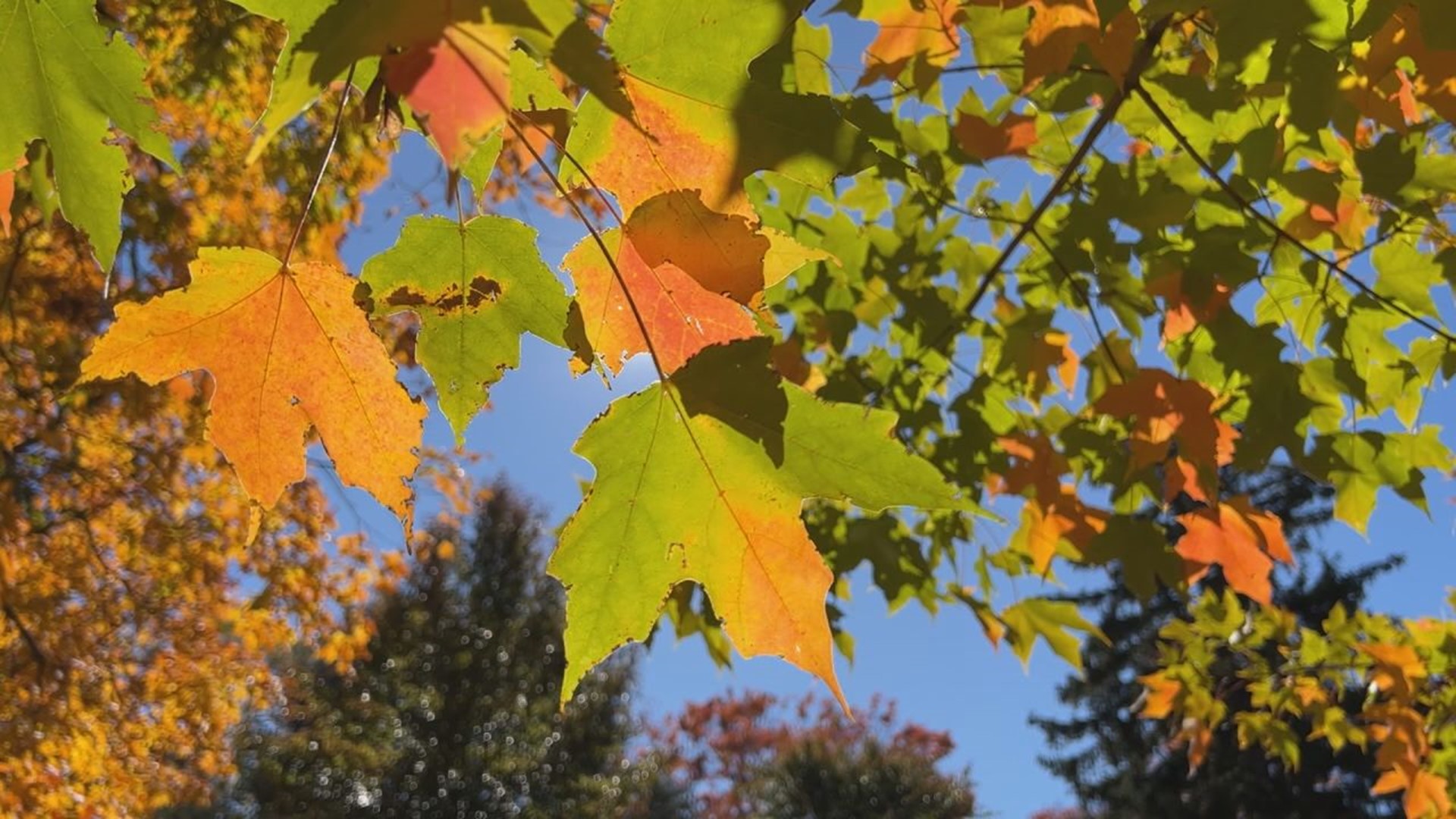YORK, Pa. — If your allergies are acting up in October or November, you’re likely suffering from ragweed or mold allergies.
This is normal for this time of the year. What’s not normal is how long it’s lasting.
Our falls are getting warmer. While there is always variability year-to-year, data shows that in Harrisburg, the average temperature in the fall has increased over 2 degrees Fahrenheit over the past 50 years. While a delay in cooler temperatures might be favorable for some, it's leading to a longer growing season and coincidingly a longer allergy season.


Dr. Amy Auerbach, an allergist at Family Allergy and Asthma in York, says it's something that she has noticed and something that her patients are complaining about.
“Ragweed and the weed pollens tend to be really severe during the fall months and the longer it is until we have a hard frost... the higher the long term levels are going to be," she says.
In South Central Pennsylvania, our first frost and freeze is trending later in the year. Data from Climate Central shows that our fall season on average has 11 more freeze-free days than we did 50 years ago.


“So normally people might only have symptoms through the end of October but if it takes until the end of November until we have a hard frost then people will have symptoms all through that time period," says Dr. Auerbach.
Once we do have a hard freeze, most symptoms tend to fade and winter can act as a respite from allergy symptoms. However, as falls get warmer and spring starts earlier, there is not much relief over the course of our coldest months.
“Last year we basically had very little break from the typical pollen allergies," Dr. Auerbach tells FOX43. "Weed pollen was still present into November and then in the spring we had tree pollen in February. So there’s a very, very brief time period where people didn’t have allergies to deal with.”
This means more sneezing, runny noses, and asthma problems for a longer period of time.
If this impacts you and your family, there are some tips to follow to help minimize the issue.
“We tell people to keep their windows closed. Don’t ride with your car windows down. If you work outdoors and get really bad symptoms, wearing a mask can be really helpful," says Dr. Auerbach.
Your local allergist can also help with medications or allergy shots that will reduce more severe symptoms.

